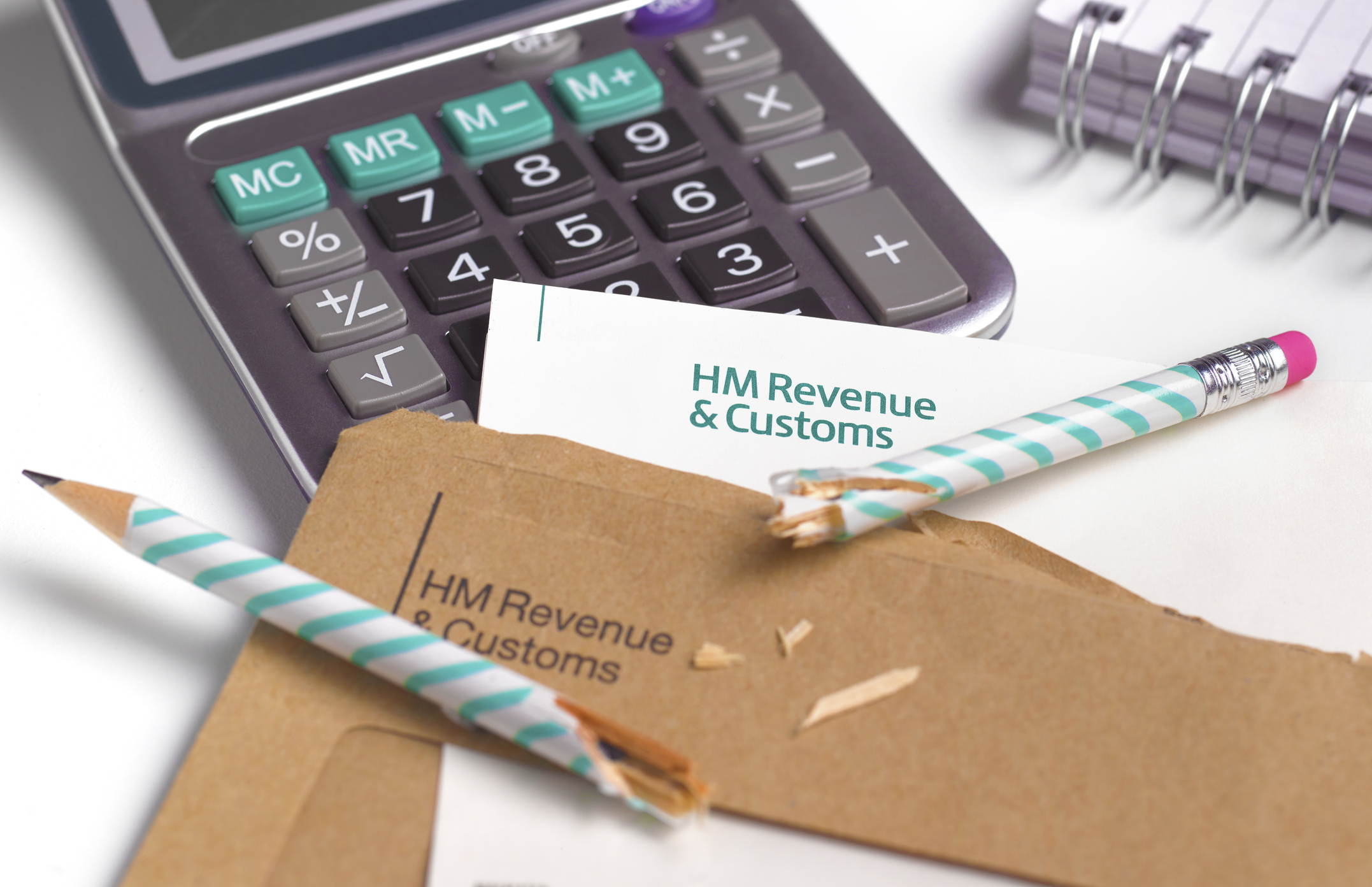It’s time to abolish child benefit completely
The new rules on child benefit are ludicrous, says Merryn Somerset Webb. It is time to dump it completely.

Get the latest financial news, insights and expert analysis from our award-winning MoneyWeek team, to help you understand what really matters when it comes to your finances.
You are now subscribed
Your newsletter sign-up was successful
Want to add more newsletters?

Twice daily
MoneyWeek
Get the latest financial news, insights and expert analysis from our award-winning MoneyWeek team, to help you understand what really matters when it comes to your finances.

Four times a week
Look After My Bills
Sign up to our free money-saving newsletter, filled with the latest news and expert advice to help you find the best tips and deals for managing your bills. Start saving today!
Do you get child benefit? Do you or your partner have a taxable income of over £50,000? And if so, do you know what is about to happen to your net income? You soon will.
HMRC has begun sending out letters to the 1.2 million families it thinks stand to lose some or all of their child benefit payments (currently £20.30 a week for the first child and £13.40 for all subsequent children) from 7 January.
After then, 1% of the child benefit will be withdrawn from the income of the higher earner in the family for every £100 of income beyond £50,000. If you have two children you will effectively have lost half the benefit by the time you are earning £55,000, and the lot by the time you hit £60,000.
MoneyWeek
Subscribe to MoneyWeek today and get your first six magazine issues absolutely FREE

Sign up to Money Morning
Don't miss the latest investment and personal finances news, market analysis, plus money-saving tips with our free twice-daily newsletter
Don't miss the latest investment and personal finances news, market analysis, plus money-saving tips with our free twice-daily newsletter
This is a mess in so many ways it is hard to know where to start. There is the fact that a couple both earning £50,000 for a joint income of £100,000 get to keep the benefit, but a couple with one earner on £60,000 and one stay-at-home parent does not (although perhaps this is a backdoor way of subsidising middle-earner-working-mother childcare?).
Then there are the complications this both creates and encourages. The scheme encourages complication in that it starts taxpayers thinking about how to keep their earnings below £50,000 in order to keep getting full payments. So expect more people earning in the region of £50,000 to ask their employers for salary sacrifice plans, and to contribute more to their pensions.
Then there is the extra work involved for taxpayers: it is estimated that, unless they take the option of simply turning down the benefit altogether, some 500,000 people who in the past did not have to fill in a self-assessment tax form will now have to do so.
Then there are the complications for HMRC, who have to collect what is effectively a new tax how are they supposed to police a system that relies on them figuring out who lives together as civil partners and who does not? We used to have high hopes for the tax system under George Osborne remember how he used to favour tax simplification and, at one point, even a flat tax? So much for that.
But there is also a much bigger problem with all this. For many decades now the British have been taxed not as family groups but as individuals (married couples started being taxed separately in 1991, for example). This reverses that completely. Not only will married people with children now need to know how much their partner earns, but so will everyone who just lives together and even those who used to live together but have separated within a tax year.
"HMRC would expect couples to discuss their tax or benefit details with each other", a spokeswomantold the BBC."However, for taxpayers unable to discuss their financial affairs, we will develop a process with appropriate security checks so HMRC can provide 'yes/no' answers to simple questions about whether child benefit is paid to the taxpayer's partner or about the level of a partner's income."
So not only does this madness make our tax system more complicated, it utterly abandons our principle of independent taxation, and makes a mockery of our confidentiality rules. It is all ludicrous.
It is, I think, time to move on and to dump child benefit completely. After all, poor families are already supported by our welfare system, and some benefit payments can be raised to compensate for the lost income from child benefit where necessary. That's got to be easier than getting 500,000 people into self-assessment and tasking HMRC with policing the living arrangements of all parents earning over £50,000.
Anyone in any doubt that this is the right way forward need only ask themselves this: if universal child benefit didn't already exist and a politician suggested its introduction this week (at the rate of £1,055 a year for the first child, and £697 a year for the second, tax free) how long would his colleagues and constituents laugh for?
Get the latest financial news, insights and expert analysis from our award-winning MoneyWeek team, to help you understand what really matters when it comes to your finances.

-
 Early signs of the AI apocalypse?
Early signs of the AI apocalypse?Uncertainty is rife as investors question what the impact of AI will be.
-
 Reach for the stars to boost Britain's space industry
Reach for the stars to boost Britain's space industryopinion We can’t afford to neglect Britain's space industry. Unfortunately, the government is taking completely the wrong approach, says Matthew Lynn
-
 Two million taxpayers to be hit by £100k tax trap by 2026/27
Two million taxpayers to be hit by £100k tax trap by 2026/27Frozen thresholds mean more people than ever are set to pay an effective income tax rate of 60% as their earnings increase beyond £100,000. We look at why, as well as how you can avoid being caught in the trap.
-
 13 tax changes in 2026 – which taxes are going up?
13 tax changes in 2026 – which taxes are going up?As 2026 gets underway, we look at what lies ahead in terms of changes to tax rates and allowances this year and how it will affect you.
-
 How to limit how much of your Christmas bonus goes to the taxman
How to limit how much of your Christmas bonus goes to the taxmanIt's Christmas bonus season but the boosted pay packet may mean much of your hard-earned reward ends up with HMRC instead of in your pocket
-
 Over 1 million pay 45% rate of income tax as fiscal drag bites
Over 1 million pay 45% rate of income tax as fiscal drag bitesHundreds of thousands more people are being pushed into the additional rate tax band by fiscal drag
-
 Simple assessment explained as millions brace for unexpected tax bills
Simple assessment explained as millions brace for unexpected tax billsIncreasing numbers of people could get letters from HMRC saying they owe more tax due to frozen thresholds, under a system known as simple assessment. Here is what it means for you.
-
 What are wealth taxes and would they work in Britain?
What are wealth taxes and would they work in Britain?The Treasury is short of cash and mulling over how it can get its hands on more money to plug the gap. Could wealth taxes do the trick?
-
 When is the self-assessment tax return deadline?
When is the self-assessment tax return deadline?If you are self-employed, rent out a property or earn income from savings or investments, you may need to complete a self-assessment tax return. We run through the deadlines you need to know about
-
 HMRC warning after scammers target 170k taxpayers – how to stay protected
HMRC warning after scammers target 170k taxpayers – how to stay protectedScammers are using increasingly sophisticated methods to trick people into sharing personal details or paying for fake self assessment tax refunds